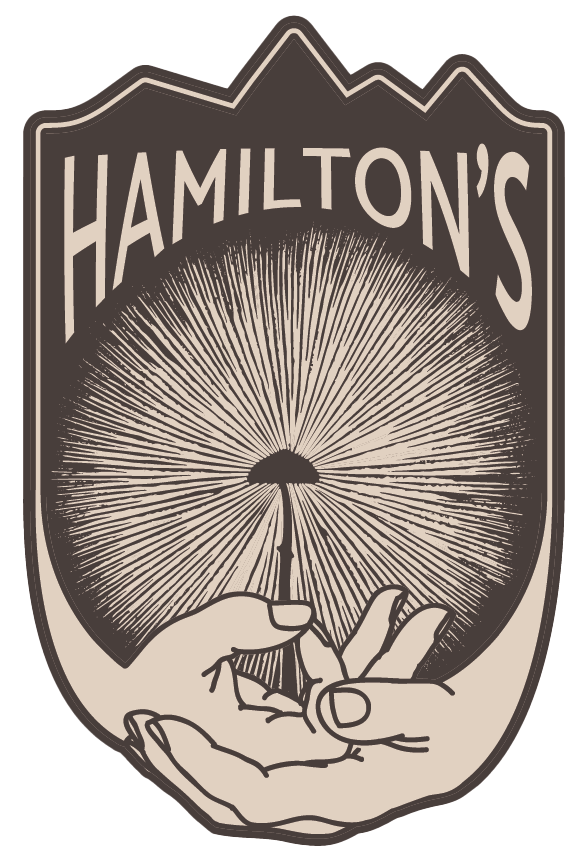I often tout Reishi mushroom for its varied health benefits but did you know it also has potential to help with seasonal allergies? I Have a many clients that find real and lasting relief during “pollen season.” Understanding how Reishi mushrooms may assist with allergies involves diving into the complex interplay of the immune system, inflammation, and the bioactive compounds present in the mushroom. Let's break this down!
Understanding Seasonal Allergies
Imagine your immune system is like a security system for your house. When it detects an intruder (such as pollen, dust, or pet dander), it sounds the alarm and sends out "security guards" (immune cells) to deal with the threat. In the case of allergies, the security system overreacts to a harmless intruder, leading to an excessive response. This overreaction involves the release of histamines, which are chemicals that cause symptoms like sneezing, itching, and congestion – similar to how an overactive alarm system might trigger all the sprinklers and alarms unnecessarily, causing more trouble than the intruder itself.

Reishi Mushroom: The Calming Agent
Reishi mushrooms contain various bioactive compounds, including polysaccharides, triterpenes, and peptidoglycans. These compounds have immuno-modulatory, anti-inflammatory, and antihistamine properties. Let's explore how these components work with our analogy:
Immuno-modulation: Adjusting the Security System
Think of Reishi mushroom as a technician who comes to adjust your security system so it responds appropriately to real threats and ignores harmless ones. The polysaccharides in Reishi help regulate the immune system, ensuring it doesn't overreact to non-threatening intruders like pollen. This adjustment reduces the likelihood of triggering an allergic response.Anti-inflammatory Properties: Soothing the Response
If your security system does overreact and the sprinklers go off, you need something to quickly clean up the mess and calm things down. The triterpenes in reishi have anti-inflammatory properties, which help reduce inflammation caused by the immune system's overreaction. This is like having a cleaning crew on standby to immediately address any unnecessary alarms.
Antihistamine Effects: Blocking Unnecessary Alarms
Finally, Reishi mushrooms have compounds that act like antihistamines, blocking the release of histamines. This is akin to installing a filter in your security system that prevents it from triggering the sprinklers unless there's a real fire. By blocking histamines, Reishi mushrooms help prevent or reduce the severity of allergy symptoms.
To sum up, Reishi mushrooms help with seasonal allergies by:
- Modulating the immune system to prevent overreaction.
- Reducing inflammation caused by allergic responses.
- Acting as natural antihistamines to block the release of histamines.
This combination of actions makes Reishi mushrooms a potentially valuable natural remedy for managing seasonal allergies, offering a holistic approach to calming an overactive immune system.
References:
Guggenheim AG, Wright KM, Zwickey HL. Immune Modulation From Five Major Mushrooms: Application to Integrative Oncology. Integr Med (Encinitas). 2014 Feb;13(1):32-44. PMID: 26770080; PMCID: PMC4684115.
Mizutani N, Nabe T, Shimazu M, Yoshino S, Kohno S. Effect of Ganoderma lucidum on pollen-induced biphasic nasal blockage in a guinea pig model of allergic rhinitis. Phytother Res. 2012 Mar;26(3):325-32. doi: 10.1002/ptr.3557. Epub 2011 Jun 23. PMID: 21698671.
Deo SS, Mistry KJ, Kakade AM, Niphadkar PV. Role played by Th2 type cytokines in IgE mediated allergy and asthma. Lung India. 2010 Apr;27(2):66-71. doi: 10.4103/0970-2113.63609. PMID: 20616938; PMCID: PMC2893428.
Amin K. The role of mast cells in allergic inflammation. Respir Med. 2012 Jan;106(1):9-14. doi: 10.1016/j.rmed.2011.09.007. Epub 2011 Nov 22. PMID: 22112783.
Nguyen TMN, Le HS, Le BV, Kim YH, Hwang I. Anti-allergic effect of inotodiol, a lanostane triterpenoid from Chaga mushroom, via selective inhibition of mast cell function. Int Immunopharmacol. 2020 Apr;81:106244. doi: 10.1016/j.intimp.2020.106244. Epub 2020 Feb 5. PMID: 32035309.

